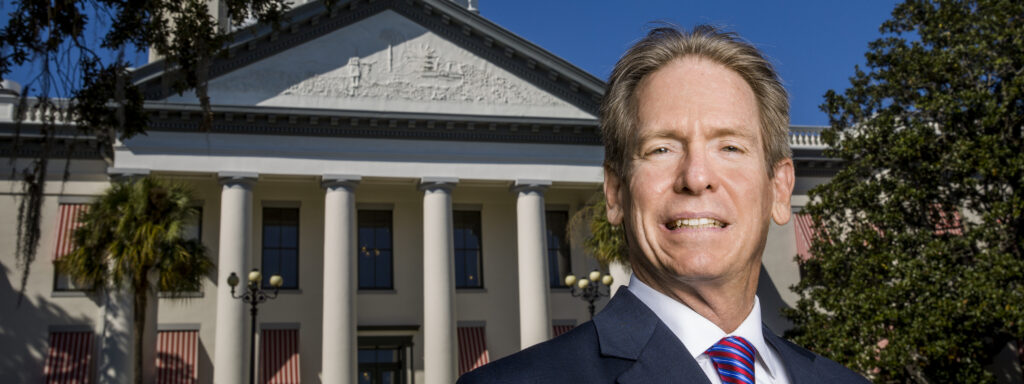New Florida E-Verify Law Affects Public and Private Employers
July 31, 2020
Florida Senate Bill 664, which was signed into law on July 1, 2020, requires public employers, as well as their contractors and subcontractors, to use the E-Verify system to confirm the work authorization status of all employees hired on or after January 1, 2021. It also requires private employers to use E-Verify or Form I-9, and maintain copies of the documents used to complete the I-9 for three years. E-Verify is a free, internet-based system through which an employer may quickly confirm that a newly hired employee is authorized to work in the United States. To use E-Verify, an employer inputs information from an employee’s I-9 form and obtains a result. According to the Florida Senate Judiciary Committee summary of the bill, 98.5% of the persons run through the E-Verify system in fiscal year 2019 were automatically confirmed as “work authorized.”
SB 664 defines “public employer” broadly as “an entity within state, regional, county, local, or municipal government, whether executive, judicial, or legislative, or any public school, community college, or state university…” Although the definition does not expressly mention special districts, it appears to be intended to include all governmental entities. The bill defines a “contractor” as a “person or entity that has entered into or is attempting to enter into a contract with a public employer to provide labor, supplies or services to such employer in exchange for salary, wages or other remuneration.” A “subcontractor” is defined as a person or entity that provides labor, supplies or services to or for a contractor or another subcontractor.
SB 664 requires a party to a public contract to terminate the contract if it believes in good faith that another party is employing an unauthorized alien or is not registered with and using E-Verify. The bill specifies that the termination is not a breach of contract. However, a contractor whose contract is terminated for failing to use E-Verify or for knowingly employing an unauthorized alien is liable for any additional costs incurred by the public employer resulting from the termination, and cannot be awarded another public contract for at least one year after a contract is terminated for failure to use E-Verify.
Beginning January 1, 2021, every public employer, contractor, and subcontractor must register with and use the E-Verify system to verify the work authorization status of all newly hired employees. A public employer, contractor, or subcontractor may not enter into a contract unless each party to the contract registers with and uses the E-Verify system. If a contractor enters into a contract with a subcontractor, the subcontractor must provide the contractor with an affidavit stating that the subcontractor does not employ, contract with, or subcontract with unauthorized aliens, and the contractor must maintain a copy of the subcontractor’s affidavit for the duration of the contract.
SB 664 also requires private employers to use E-Verify or Form I-9 for employees hired on or after January 1, 2020, and maintain copies of the documents used to complete the I-9 for three years. To enforce the eligibility-verification requirements for private employers, the bill requires an employer to provide an employee’s eligibility-verification documents to any of several government agencies upon request. These agencies, in turn, must request the federal government to check the employee’s work-eligibility status. If a private employer does not use E-Verify or the I-9 form to verify and document an employee’s eligibility for employment, the Department of Economic Opportunity may send the employer a notice, and the employer must terminate any unauthorized employees, begin using E-Verify or the bill’s I-9 procedure, and respond with an affidavit of compliance within 30 days. If the employer does not do so, its state business licenses may be suspended. If an employer fails to properly respond to a DEO notice three times in any 36 month period, its business licenses can be permanently revoked.
For more information, please visit https://www.e-verify.gov/ or contact Jim Linn at jlinn@llw-law.com.

